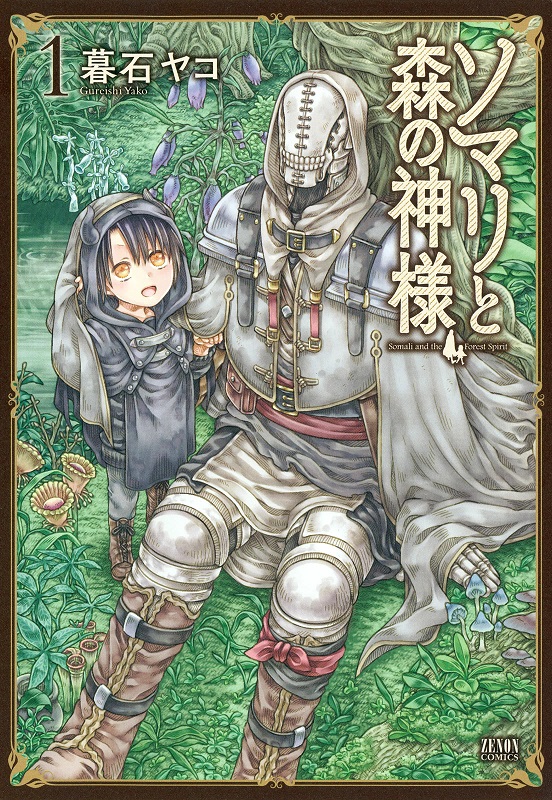
There's few things more engaging than inconvenient daydreams accompanying bedtime. They might be self-indulgent thoughts about some great skill you acquire, or a feat of bravado that's rewarded. Since my childhood a persistent fantasy was being the singer in a band with the ability to do female vocals. In reality I have the vocal tenacity of a dairy cow with bovine tuberculosis. Filling gaps in your own abilities or agency are fairly benign exercises, mastubatory behavior that gives you reprieve from the restraint of childhood or the crushing monotony of adulthood. Naturally, such a genre would spring up in Japan, probably the most "unfilled" populace on planet Earth. The national flag might as well be replaced with a banner that reads "WISH FULFILLMENT"
To put it simply, "Isekai" means parallel world in Japanese. The story usually kicks off with the cookie-cutter demise of the main character, usually via unfortunately placed courier truck or karoshi.
The character then gets reanimated by a benevolent god and transported to a Monster-hunter inspired pre-industrial fantasy world. After being awoken by a busty lass so lifeless she might as well be a sack with some lipstick smeared across it, the character uses his priviledged knowledge of modern technology to gain notoriety across the nation. He is heralded as a demi-god holding substancial power and agency over the mud-smeared uneducated farmhands while laying low to hide from various factions intending to exploit his knowledge. Pretty simple, right?
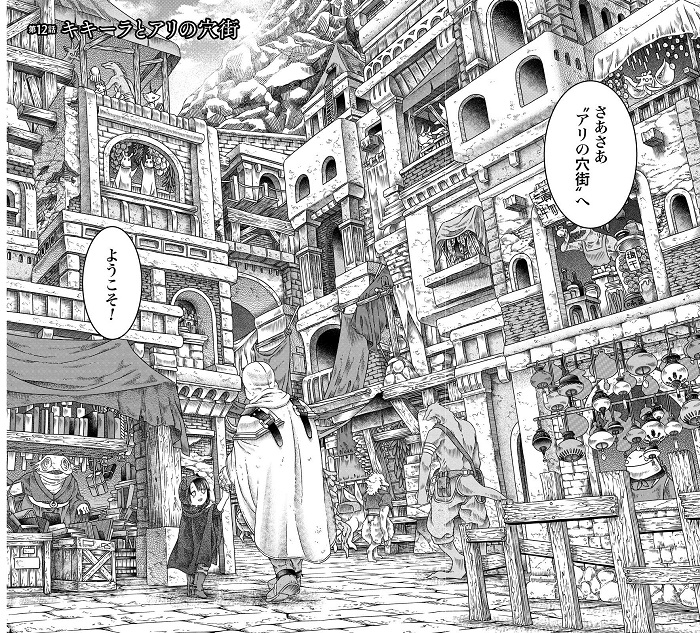
We've all had similar mental projections as we're drifting off to sleep. The echoes of freedom and self-determination are inaccessible today, lost in our modern wageslave economy. Only truly regressive figures like mountain hermits and survivalists can lay claim to fulfilling such values.
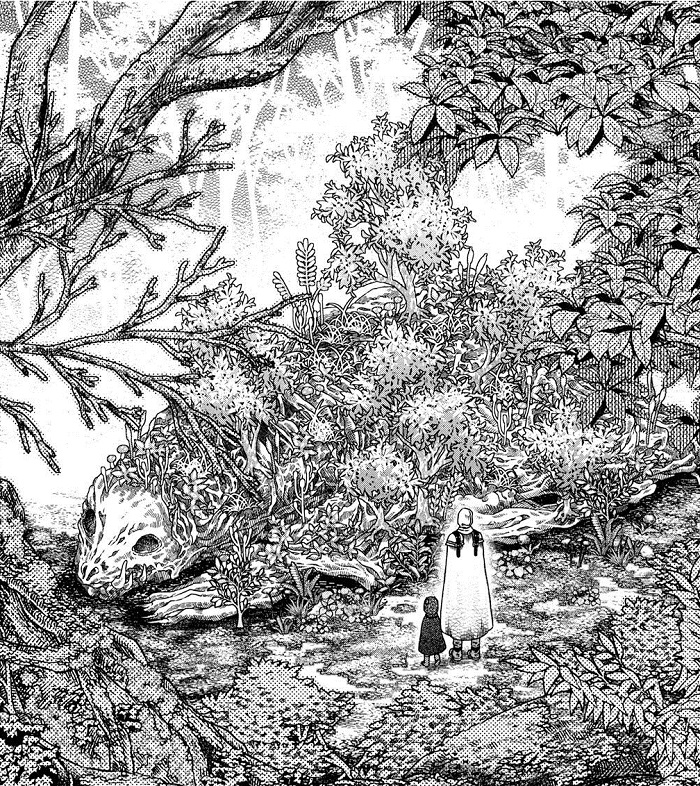
It's quite the condemnation to have one of the pillars of popular media centering around a wholesome rejection of contemporary society, to have scenarios with individual agency only possible if society itself is no longer present. In reality life is predetermined from birth, try to have fun while you're in the pipeline. The constant paranoia of a society that is both appreciative of your indivudal contributions yet unwaveringly willing to exploit it establishes the questionable relationship with labor the Japanese have. There is no genre that better encapsulates what's deficient in the Japanese existence as Isekai manga.
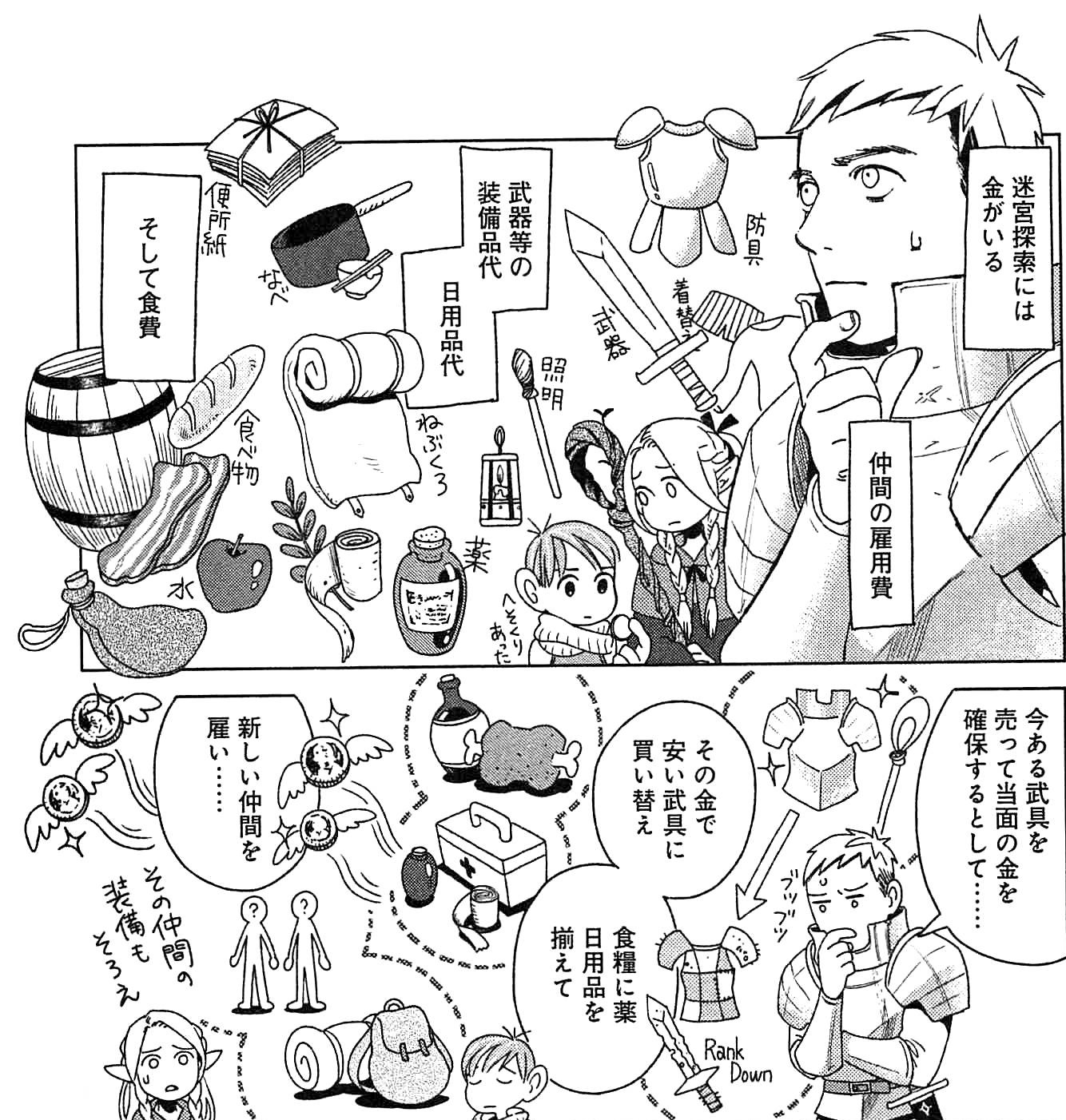
Not to say this genre isn't enjoyable. Its fixation is what makes it so attractive. Series that go in-depth in the many steps to industrialization are elucidating. Agriculture, water management, logistics, public sanitation, metalworking, the list goes on to the possible extrapolations. There's plenty of potential to take a series far beyond the cathartic powertrip that defines this genre, branching out to technical explanations or real-life historical precedence. Do most series do that? Some, but not all unfortunately. With alternate universe plots you can start from zero. Good series contruct gorgeous, bottomless worlds where the main objective isn't to make something eye-catching, but to make it believeable. Character and building designs are ambitious and thematically consistent. A lazy author uses the alternate world gimmick as an excuse to improvise, to rely on traditional archetypes of knights and dragons, euros and ethnics. Flat, lifeless characters draped over flat, lifeless settings.
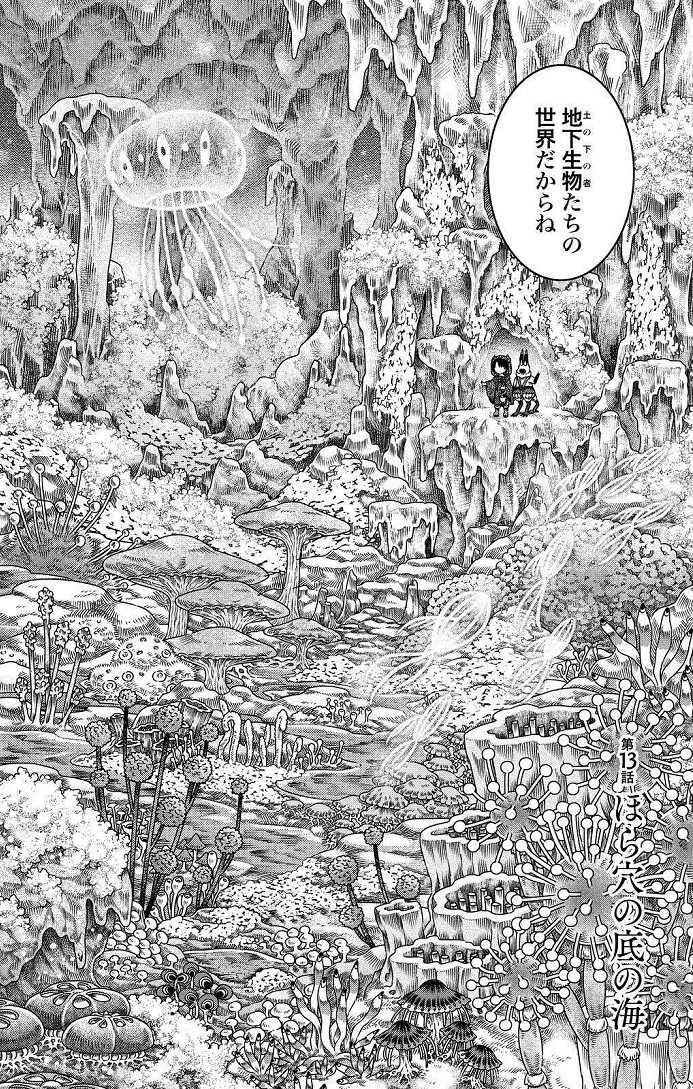
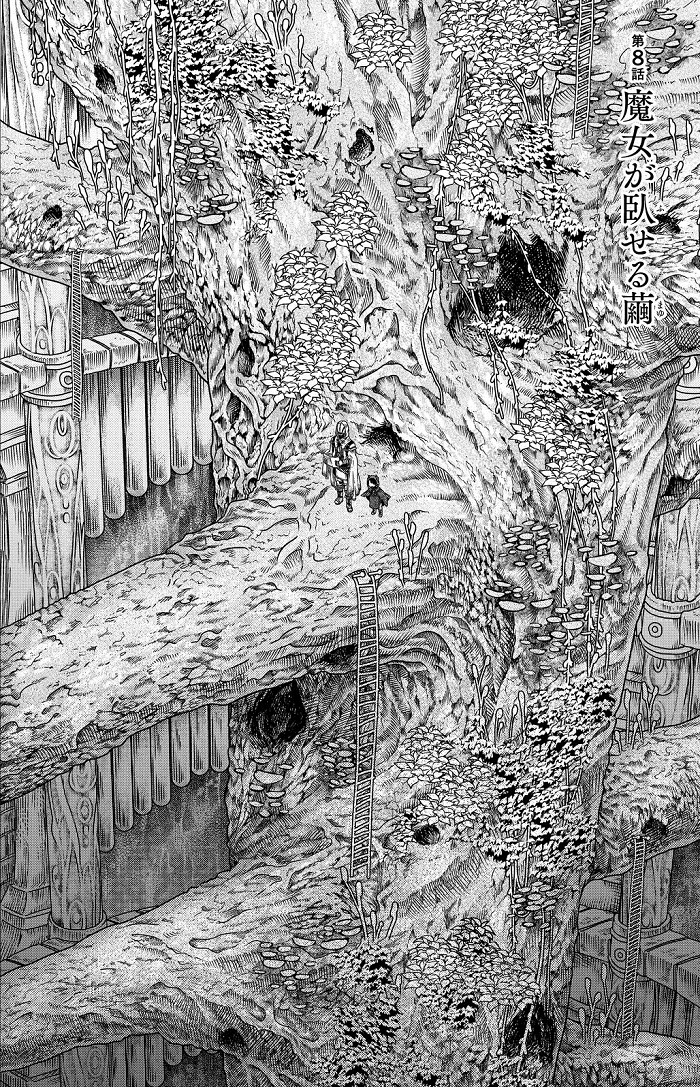
But above all, bad authors make the critical mistake of omitting the small things. The role of currency is absolutely huge. How goods get traded across arbitrary lines. The options available to the characters for food and lodging. Social structures like proles and aristocrats, their intertwined roles, and the emergence of politics in general. Examples of microeconomies are a great way to show goods with certain design elements or variation. Potion vendors are a great thermometer to to establish the level of magic that the author wants to establish. Clothing shops can tell show the reader temperature ranges the characters are travelling through far more effectively than lines on the face. Seemingly boring details can blossom into vital tools for plotbuilding. Take Dungeon Meshi for example, a rather generic fantasy food manga that takes cues heavily from the game Dragonquest. From elevating bleeding wounds to laundry nonchalantly hanging in the background, the little details that flesh out both the setting and the reader's perceived passage of time amplify what would otherwise be a somewhat unremarkable series.
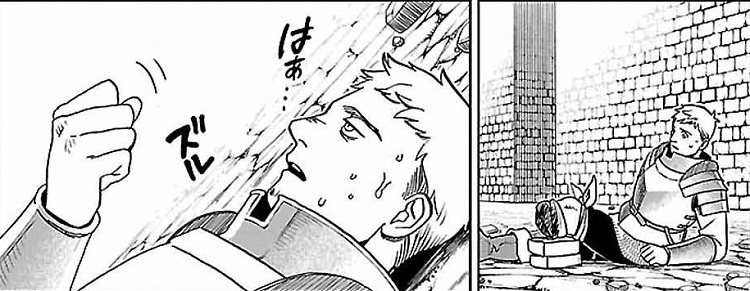
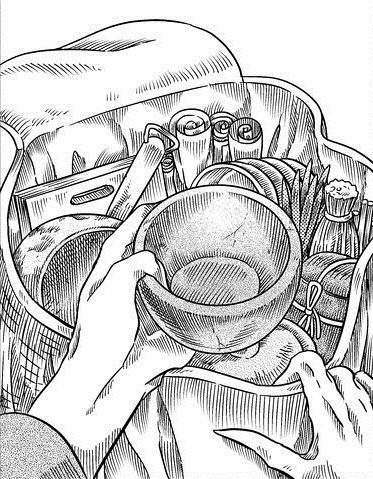
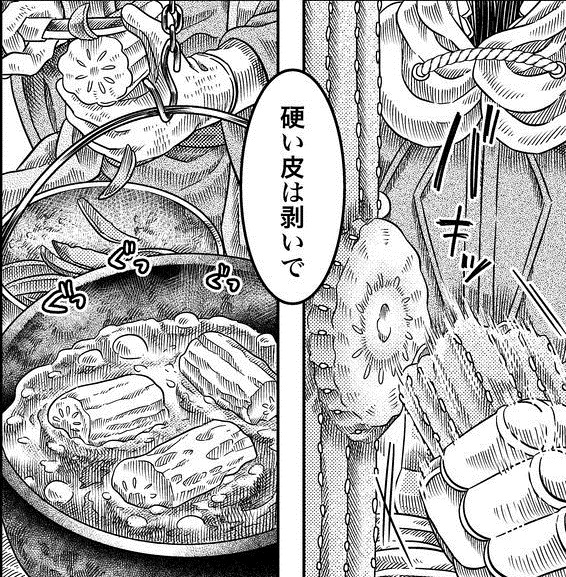
Adversity is also vital, to make it apparent that acclimating to a pre-industrial world takes more than flipping through a few filler pages. The characters are the vessel for which the reader interacts with the world. Any disparity in "huh, wonder why he did that" erodes any sense of wonder and curiosity. Because at the center of this genre the characters certainly are not the main dish, the settings are. Character growth is only as important as settings that are being gradually fleshed out.
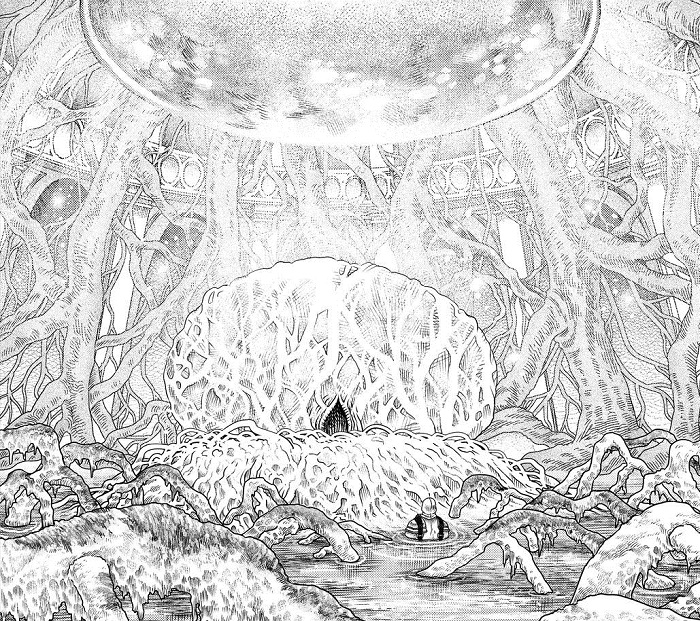
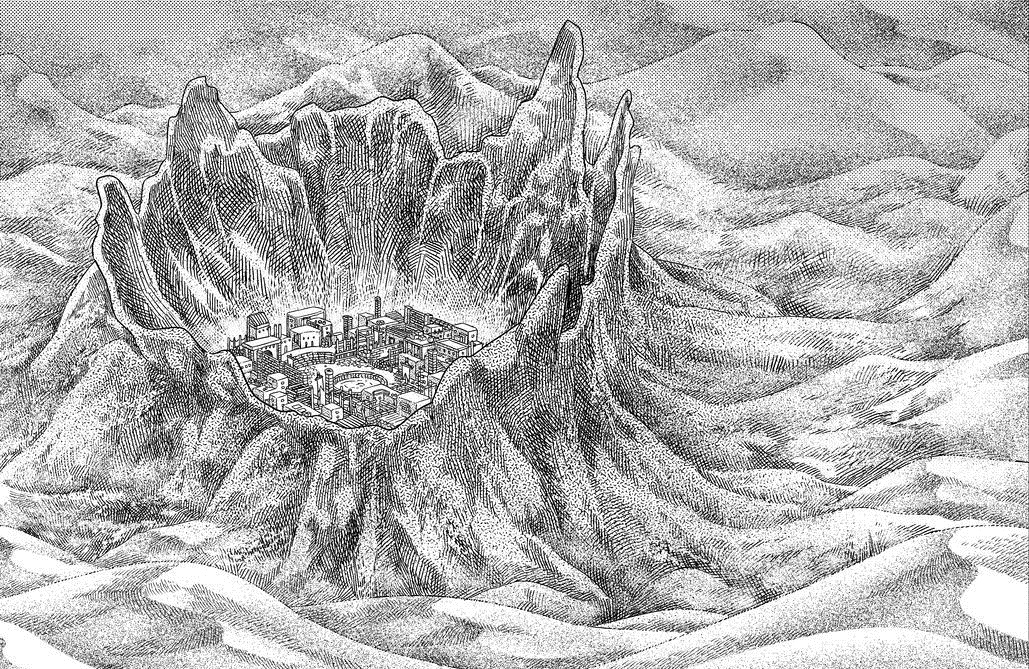
Easy plot devices are again, everywhere. The ominous dark figures at the end of chapters can be reserved for your Conan, the Japanese male melted wax approximations can be reserved for Sword Art Online. Such crutches are forgivable when volumes are in the triple digits and gratuitous filler is expected, but not so much for a 3 part series. Others manage to pull off truly cinematic pacing.

For those who enjoy colony management or wilderness adventure games, this genre is a perfect match. Sift though the swillbucket and you'll find something.
created: 1/27/2019
edited: 2/5/2023
back to top ⤴


One of my favorites is 神達に拾われた男, There's several plot points that I'm quite fond of, ones that add complexity to what is admittedly still a deeply gratuitous genre. The MC spends 2 volumes cleaning up literal garbage and cesspits in the name of public health. It dovetails well into the tone of the story but is an impossibly strange and ambitious diversion. The series also dodges the needless anxiety of a typical battle shounen, makes the series an easy read.

The other effective thematic tool is the relationship with omnipotent gods that toss in humans every once in a while. The MC isn't a one-off, there are others who have interpreted this chance at a new life differently. Some would die alone, others would marry into royalty. It answers the perennial "what next?" of an endlessly self-indulgent series like this and it establishes that the world has a definite linearity, not just a blurry smudge of lore centering around an exceptional main character.

Finally there really isn't a singular goal. The MC starts a laundry shop at volume 6. Is this what the author thought readers were looking for? Surely not. By now MC's are usually training in magic or punching boulders or whatever. But the authors know what's good for us, and power-tripping manifests differently in this series. Breaking up corruption, reducing diseases, training slimes, it's much more benign events that precipitate into a well-rounded idea of what this world is.

The other series I'm somewhat infatuated with is 宝くじで40億当たったんだけど異世界に移住する, one of those mile-long titles that english translations won't butcher. It more or less turns into "I won 40 million on the lottery but I'm moving to another world." Here, the allure is the same. Water wheels, agriculture, steelworking, it casts a lens into the most basic of neccessities, something rendered interesting by our modern proximity to it. Here there is a greater emphasis on infrastructure and governance, something that sounds as interesting as boiled steak. Its presentation in telling the reader why it matters is done very effectively, you genuinely want the characters to succeed as they divert rivers for agriculture or smelt iron in crucibles.
The MC is just some guy, he might as well be an animated sockpuppet. His infinite powers come from his money, much like in real life. After buying masses of tools from home improvement stores and commissioning waterwheels from engineering firms, he brings them back to the parallel world to help out. There's also a sense of linear time, an established history in the lore that makes the MC's actions a bit smaller to the rest of the world.
The plot is more character and drama-centric here, compensating for the rather flat MC characterization. Like Kamitachi it's a manga adaptation of a light novel. As with any transformation of mediums some things will get lost in translation. Personally I think the presentation of settings that are not about the empire in the parallel world are a bit lackluster. The MC jumps between that and modern life numerous times yet the latter is almost wholly ignored. Comparing the two lifestyles would've been a bit of introspection, some depth in the main character expressed without the presence of other talking heads. Other neighboring empires are also distilled down to foreshadowing cliffhangers to ratchet up the tension, another missed opportunity.

created: 5/24/2021
back to top ⤴
